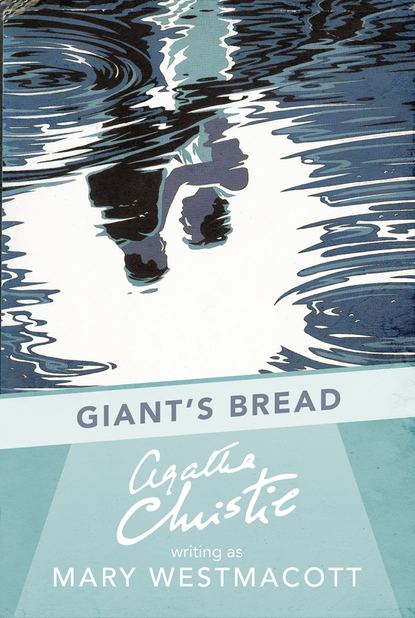По всем вопросам обращайтесь на: info@litportal.ru
(©) 2003-2025.
✖
Giant’s Bread
Автор
Год написания книги
2019
Настройки чтения
Размер шрифта
Высота строк
Поля
‘Yes, but, my dear girl—’
And then, for a while, Vernon heard no more. Their voices were lowered, his father seemed to be arguing with his aunt. Finally his voice rose again.
‘You can’t take a mad step like that. It’s not even as though you cared for Anstey. You don’t.’
‘I suppose not—but he’s crazy about me.’
His father said something that sounded like ‘Social Ostriches’. Nina laughed again.
‘That? We’d neither of us care.’
‘Anstey would in the end.’
‘Fred would divorce me—only too glad of the chance. Then we could marry.’
‘Even then—’
‘Walter on the social conventions! It has its humorous side!’
‘Women and men are very different,’ said Vernon’s father drily.
‘Oh! I know—I know. But anything’s better than this everlasting misery. Of course at the bottom of it all is that I still care for Fred—I always did. And he never cared for me.’
‘There’s the kid,’ said Walter Deyre. ‘You can’t go off and leave her.’
‘Can’t I? I’m not much of a mother, you know. As a matter of fact I’d take her with me. Fred wouldn’t care. He hates her as much as he hates me.’
There was another pause, a long one this time. Then Nina said slowly:
‘What a ghastly tangle human beings can get themselves into. And in your case and mine, Walter, it’s all our own fault. We’re a nice family! We bring bad luck to ourselves and to anyone we have anything to do with.’
Walter Deyre got up. He filled a pipe abstractedly, then moved slowly away. For the first time Nina noticed Vernon.
‘Hallo, child,’ she said. ‘I didn’t see you were there. How much did you understand of all that, I wonder?’
‘I don’t know,’ said Vernon vaguely, shifting from foot to foot.
Nina opened a chain bag, took out a tortoiseshell case and extracted a cigarette which she proceeded to light. Vernon watched her, fascinated. He had never seen a woman smoke.
‘What’s the matter?’ said Nina.
‘Mummy says,’ said Vernon, ‘that no nice woman would ever smoke. She said so to Miss Robbins.’
‘Oh, well!’ said Nina. She puffed out a cloud of smoke. ‘I expect she was quite right. I’m not a nice woman, you see, Vernon.’
Vernon looked at her, vaguely distressed.
‘I think you’re very pretty,’ he said rather shyly.
‘That’s not the same thing,’ Nina’s smile widened. ‘Come here, Vernon.’
He came obediently. Nina put her hands on his shoulders and looked him over quizzically. He submitted patiently. He never minded being touched by Aunt Nina. Her hands were light—not clutching like his mother’s.
‘Yes,’ said Nina. ‘You’re a Deyre—very much so. Rough luck on Myra, but there it is.’
‘What does that mean?’ said Vernon.
‘It means that you’re like your father’s family and not like your mother’s—worse luck for you.’
‘Why worse luck for me?’
‘Because the Deyres, Vernon, are neither happy nor successful. And they can’t make good.’
What funny things Aunt Nina said! She said them half laughingly, so perhaps she didn’t mean them. And yet somehow—there was something in them that, though he didn’t understand, made him afraid.
‘Would it be better,’ he said suddenly, ‘to be like Uncle Sydney?’
‘Much better. Much better.’
Vernon considered.
‘But then,’ he said slowly, ‘if I was like Uncle Sydney—’
He stopped, trying to get his thoughts into words.
‘Yes, well?’
‘If I was Uncle Sydney, I should have to live at Larch Hurst—and not here.’
Larch Hurst was a stoutly built red brick villa near Birmingham where Vernon had once been taken to stay with Uncle Sydney and Aunt Carrie. It had three acres of superb pleasure grounds, a rose garden, a pergola, a goldfish tank, and two excellently fitted bathrooms.
‘And wouldn’t you like that?’ asked Nina, still watching him.
‘No!’ said Vernon. A great sigh broke from him, heaving his small chest. ‘I want to live here—always, always, always!’
Soon after this, something queer happened about Aunt Nina. His mother began to speak of her and his father managed to hush her down with a sideways glance at himself. He only carried away a couple of phrases: ‘It’s that poor child I’m so sorry for. You’ve only got to look at Nina to see she’s a bad lot and always will be.’
The poor child, Vernon knew, was his cousin Josephine whom he had never seen, but to whom he sent presents at Christmas and duly received them in return. He wondered why Josephine was ‘poor’ and why his mother was sorry for her, and also why Aunt Nina was a bad lot—whatever that meant. He asked Miss Robbins, who got very pink and told him he mustn’t talk about ‘things like that’. Things like what? Vernon wondered.
However, he didn’t think much more about it, till four months later, when the matter was mentioned once more. This time no one noticed Vernon’s presence—feelings were running too high for that. His mother and father were in the middle of a vehement discussion. His mother, as usual, was vociferous, excited. His father was very quiet.
‘Disgraceful!’ Myra was saying. ‘Within three months of running away with one man to go off with another. It shows her up in her true light. I always knew what she was like. Men, men, men, nothing but men!’
‘You’re welcome to any opinion you choose, Myra. That’s not the point. I knew perfectly how it would strike you.’
‘And anyone else too, I should think! I can’t understand you, Walter. You call yourself an old family and all that—’
‘We are an old family,’ he put in quietly.

















